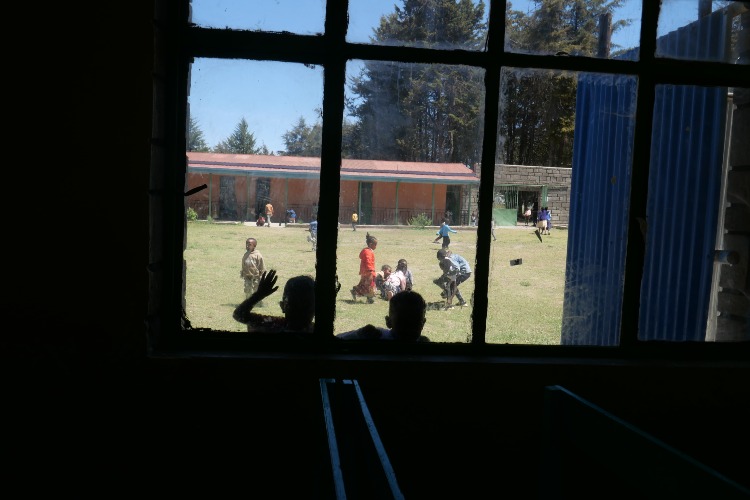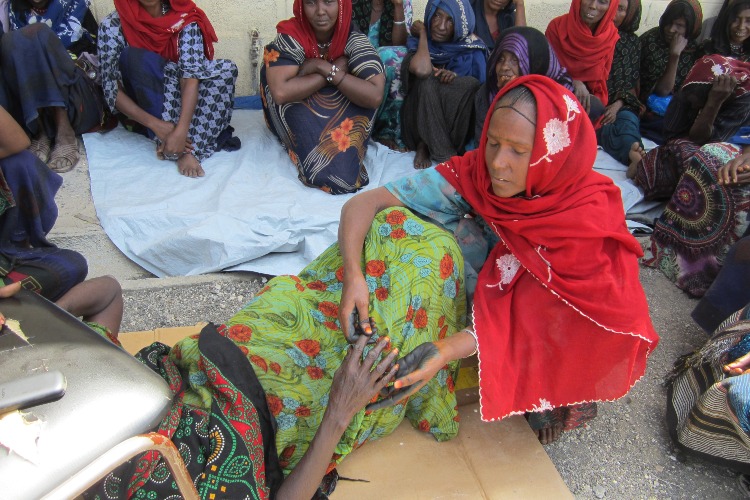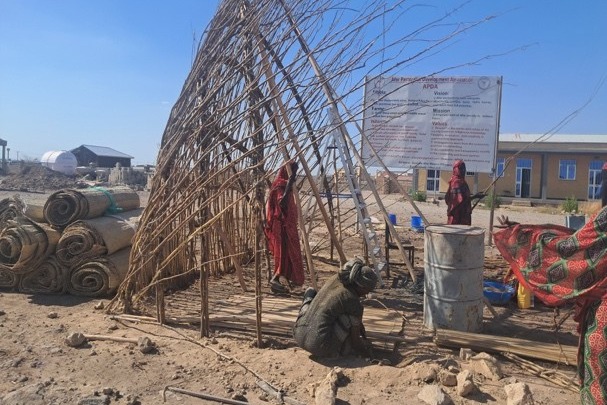Q&A with leading Ethiopian fistula surgeon, Dr Ambaye.

*
28 April 2025
With 27 years of medical experience, Dr. Ambaye has dedicated her career to helping women across Africa, especially in Ethiopia, suffering from obstetric fistula. She founded Hope of Light, which runs three fistula hospitals in Ethiopia.
Dr. Ambaye has spent the last 5 years working with Ethiopiaid, where she has led efforts to provide life-saving care for women suffering from fistula, urinary incontinence, and pelvic prolapse. Through her work, she and her team not only perform surgeries but also engage in outreach programs to raise awareness in rural communities, where many women are unaware of the condition or that it can be treated.
In this Q&A, we delve deeper into Dr. Ambaye’s work, looking at the connections between fistula, poverty and inequality, and the far-reaching impact we have in healing these women’s lives.
Q. What are the long-term health complications for women living with untreated fistula?
A. A woman living with untreated fistula suffers from incontinence, where urine or faeces, sometimes both, leaks constantly. This of course is awful to experience, and can cause lots of other problems, such as kidney damage, bladder and urinary tract infections, and even skin irritations and sores from constantly being wet and dirty. Many women suffer chronic pain and sometimes women suffer infertility because of the obstructed labour that caused the fistula.
Q. Beyond the physical damage, what psychological and social consequences do these women face?
A. Women who suffer fistula live very difficult lives. The complex belief system in the minds of most Ethiopians leads patients to believe this illness is a punishment for their sins.
The incontinence also leads to patients be shunned by their families and society, and often they hide themselves away. They live with the shame and the smell of incontinence, and they have no self esteem, they always feel bad about themselves. They believe themselves to be cursed. Hope of Light counsels patients to dispel misconceptions about fistula, and aids patients in their whole treatment journey, including reintegration into regular life once they have recovered physically from their surgery.
Q. How does fistula affect a woman’s ability to participate in her community, earn a livelihood or care for her family?
A. When a woman is believed to be cursed, or she is too ashamed to be part of society, she cannot work or earn money in a normal way.
Often women with fistula are abandoned by their husbands, so they end up alone, or with no help to care for other family members or earn money. Her whole place in society is changed.
Q. In your experience, what are the underlying causes of obstetric fistula in Ethiopia – and how do they relate to poverty? Why is fistula so often found in rural, impoverished areas compared to urban centres?
A. We see many causes of fistula. Things like early marriage and malnutrition play a part because the girl is not developed enough or is too malnourished to give birth easily. Then there are causes like illiteracy and lack of medical care. A pregnant woman gives birth at home with no antenatal care, because without education she follows a traditional way of thinking and this is how her mother and grandmother gave birth.
If there are complications and there is a decision to go to the hospital, often it is too late - the hospital is far enough away that the damage is already done. So then this becomes more common in rural areas compared to cities because this is where early marriage is still practiced and where livelihoods are agricultural, so they are more susceptible to climate and conflict and more at risk of malnutrition. In cities with higher access to education and health facilities, women are more likely knowledgeable about maternal health and know where to access help. Even the roads in cities help - it doesn’t take hours or day to get to the hospital, so deters fistula from occurring.
Q. For donors looking to make the greatest impact, where is funding most urgently needed?
A. Our Gondar Fistula Centre is where we receive and treat hundreds of women every year. We need constant funding for the hospital so we can keep helping women and providing them with everything they need to recover from fistula. But we also need to invest in preventing fistula. This means we need to educate communities about giving birth with medical care and we need to train more medical professionals to assist women. Helping us in prevention will make all the difference in the future and will save many women from suffering in the first place.
Q. What advances have been made in Ethiopia to address fistula, and what more needs to be done?
A. So, there has been great change in the three decades that I have been working on fistula. When I started, the number of patients coming to the hospital was unbelievable. Over the years, there are fewer women than before which is a big change.
So, how did we get this change? The first thing is that a lot of health facilities have been constructed. It is still not enough, and we never have enough supplies, but it is an improvement. And there has been a lot of training, especially midwives. We need to keep increasing the number of midwives trained and assigned to remote areas and we also need to reach more women who are living in isolation so they can be cured.
Q. If Ethiopia had universal access to maternal healthcare, how different would the landscape of fistula be?
A. Already we have seen a great reduction in cases of fistula because of improvements to healthcare, and more women being able to access it. So yes, universal access to maternal healthcare would make a huge change. Fistula can be prevented if women receive care on time, especially if they have a difficult birth, so I can imagine nearly all cases of fistula would be prevented if all women received care.
Q. Can you share a patient story that illustrates both the devastation of untreated fistula and the life-changing impact of surgery?
A. I sent you an email recently about a young woman Negesti, and I hope you will share her story with our supporters. She developed a fistula when she was only 18. She lost her baby after a long and very bad labour at home. She had fistula and suffered alone for months before she was referred to the Gondar Fistula Centre. Her surgery went very well and she recovered after receiving all the support we could offer. I feel like even though it is so sad, hers is a story of hope, because Negesti herself is hopeful to have another baby now that she and her husband understand how problems can be prevented in the future.
Q. If donors act now, what tangible changes could we see in Ethiopia’s fistula crisis over the next 5 to 10 years?
A. If we receive the funding we need, in the next five to ten years I expect that we will see a big decrease in the number of new cases of fistula. There will be many women still who need surgery, but gradually, we will see the problem happening less and less, and more women will be treated and cured.
My hope is that one day no woman in Ethiopia will develop fistula. We know fistula is preventable, so we are working hard not just on treatment, but in reducing the number of women who develop fistula. It is a slow process, but I have seen how much progress has been made already, and with the continued funding from Ethiopiaid and your supporters, I know one day fistula will be gone for good in Ethiopia.


.png)



